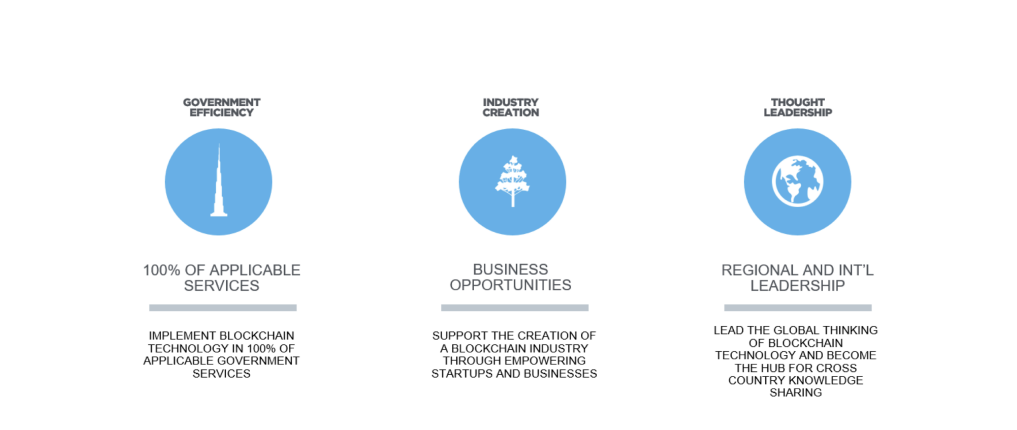Table of Contents
In a mere 25 years, the city of Dubai along with its neighboring Emirates have gone from desert coastal towns to top destination status for work, play and living. How did they pull it off? The answer is simple. It was vision and ambition.
Today some of the richest live in Dubai and call it home. It wasn’t a coincidence, though. The city government has been unapologetic about the future and developing around its needs. It has attracted some of the biggest names and built companies of its own that have pulled in talent from every nook and cranny of the world. It’s on its way to becoming a financial hub among London, Hong Kong, New York and now it’s probably the most crypto ready city in the world. No other place comes close.
Currently, the online job search company LinkedIn lists over 22,000 blockchain jobs worldwide, most of them paying upwards of USD 90,000/pa. However, there aren’t too many skilled web3 developers to fill them in. But when there are any, it’s most likely you’ll be headed to Dubai for your next web3 job.
The city is ready to welcome and invest in companies, as well as bring on more tech talent like blockchain developers for government and private enterprises to boost its innovation and bring in more venture capital dirhams.

The vision
Back when the world was still building for web2 technologies, Dubai was thinking far, far ahead. In 2016, the Dubai Blockchain Strategy was first announced. But even prior to the strategy’s launch, the Dubai Future Foundation had already laid the ground work for blockchain advancement through the establishment of the Global Blockchain Council.
This collaborative initiative, GBC, encompassed 42 government entities and private companies, and served as a platform for deliberating the optimal applications of blockchain technologies in governance, business, everywhere – for efficiency.
The pioneering Dubai Blockchain Strategy meant Dubai wasn’t playing around. While countries around the world are busy banning cryptocurrency, Dubai begun focusing on implementation of the innovative technology. To call the city a trailblazer, wouldn’t be an understatement.
This strategy was the outcome of a collaborative effort between two key entities: the Smart Dubai Office and the Dubai Future Foundation. The Dubai Future Foundation took on the responsibility of overseeing the strategy execution, while the Smart Dubai Office has been entrusted with its operational implementation. Moreover, Dubai established the Virtual Asset Regulatory Authority (VARA), the world’s first independent crypto regulator in March 2022.
The Dubai government wants what it wants, and there’s no stopping it. Let’s look at the meaning behind this strategy.
The Dubai Blockchain Strategy has three core pillars
1. Enhancing government efficiency
One of the primary objectives of the strategy is to bolster government efficiency. This will be achieved by creating a seamless digital layer for all urban transactions, supporting Smart Dubai initiatives across both the public and private sectors. So what will this result in?

Transactions reliant on physical documentation, such as visa applications, bill payments, and license renewals, will transition to a digital platform. This shift is anticipated to yield substantial benefits, including potential savings of up to 114 million metric tons of CO2 emissions and the reclamation of approximately 25.1 million hours of economic productivity by expediting document processing.
Smart Dubai
Adopting blockchain technology, Dubai stands to unlock 5.5 billion dirhams in savings annually in document processing alone — equal to the one Burj Khalifa’s worth of value every year.
Fostering industry creation
Then they wanted to focus on fostering the creation of new businesses using blockchain technology. Industries spanning real estate, fintech and banking, healthcare, transportation, urban planning, smart energy, digital commerce, and tourism stand to benefit from the adoption of blockchain technology.
This was further cemented in when it was announced that Dubai will be welcoming and giving a place to over 1000 blockchain companies till the year 2030 to encourage business activity in the region. This is substantiated by the fact that Changpeng Zhao’s Binance, WazirX, Coinbase and Crypto.com — all of them some of the biggest names in blockchain, have in fact moved to Dubai.
Establishing international leadership
Finally, Dubai wants to position itself as a blockchain leader on the global stage. Which, without doubt and with great intention, it is. Dubai expressed its desire to open up its blockchain platform to international counterparts, thereby enhancing safety, security, and convenience for travelers to the city.
This encompasses streamlined entry procedures through pre-approved passports and security clearances, facilitated mobility within Dubai via approved driver’s licenses and car rentals, reliable wireless connectivity, augmented tourism, and pre-authenticated temporary digital wallets and payments. This international outreach will be facilitated through a Global Trust Network involving partners from Europe, North America, and Asia.
So while the west struggles with adoption and regulation of a new technology, and institutions like the SEC of USA become a thorn in the flesh of blockchain companies, Dubai stands with its arms wide open. The question is, are you taking your blockchain skills and projects there and benefitting from it?
